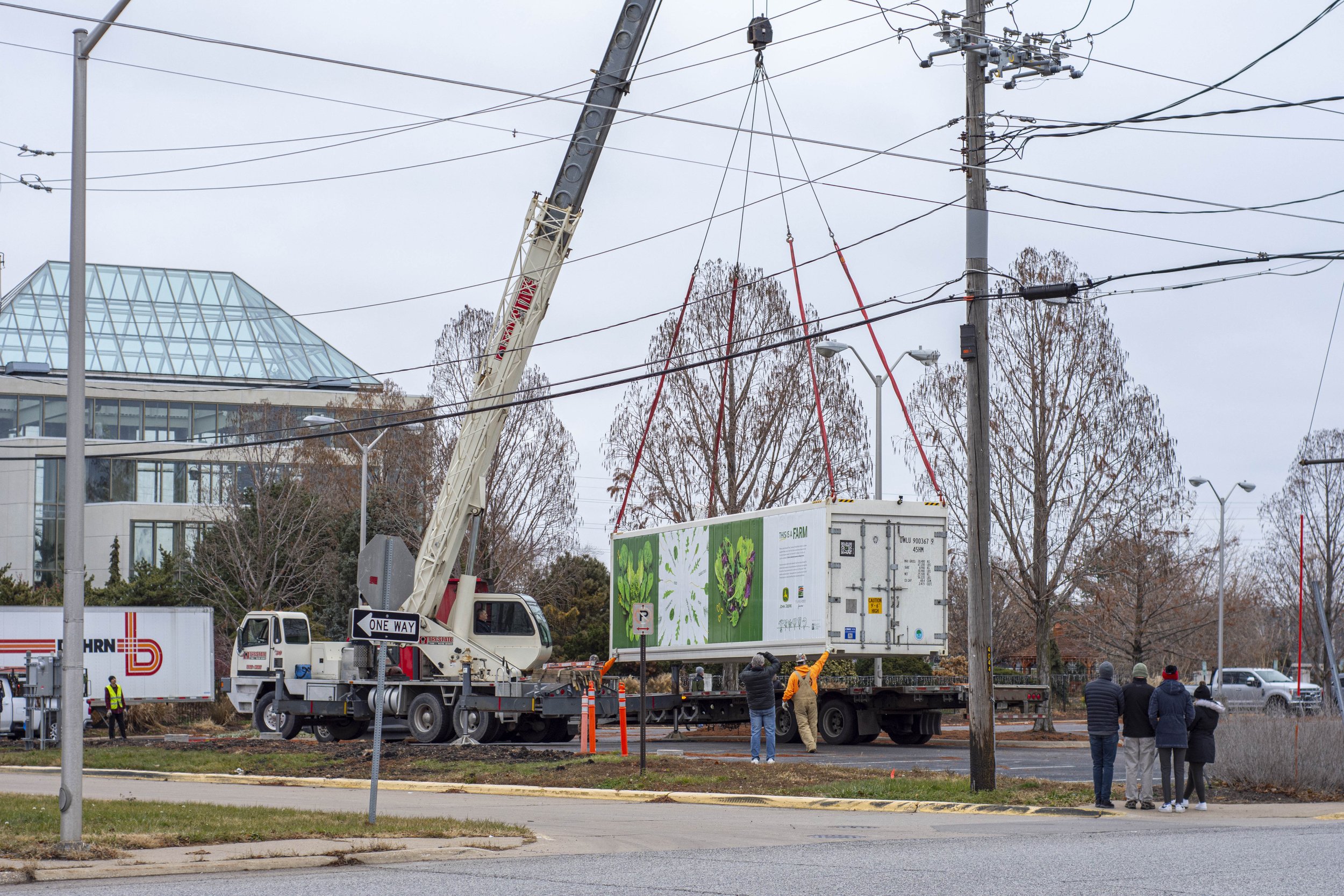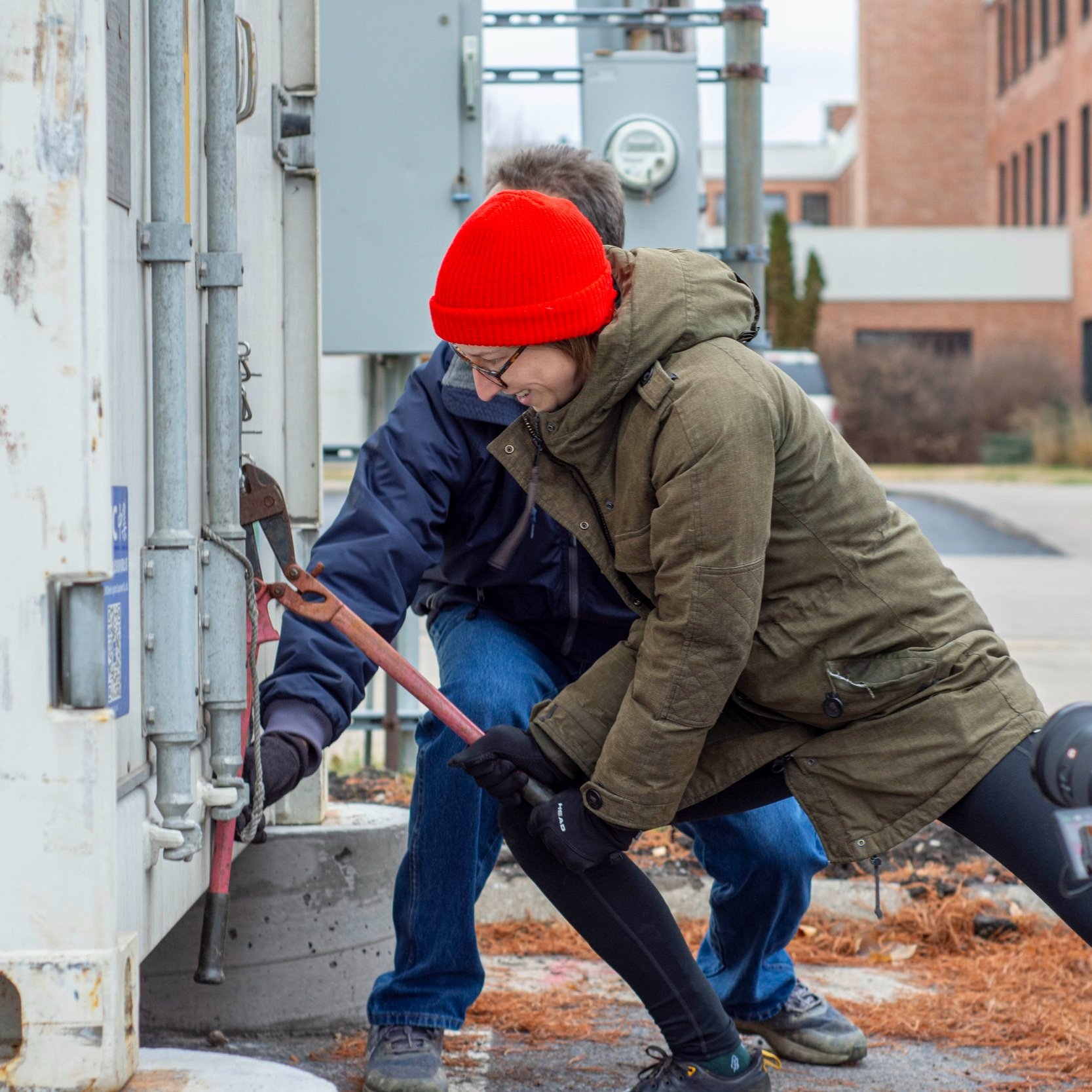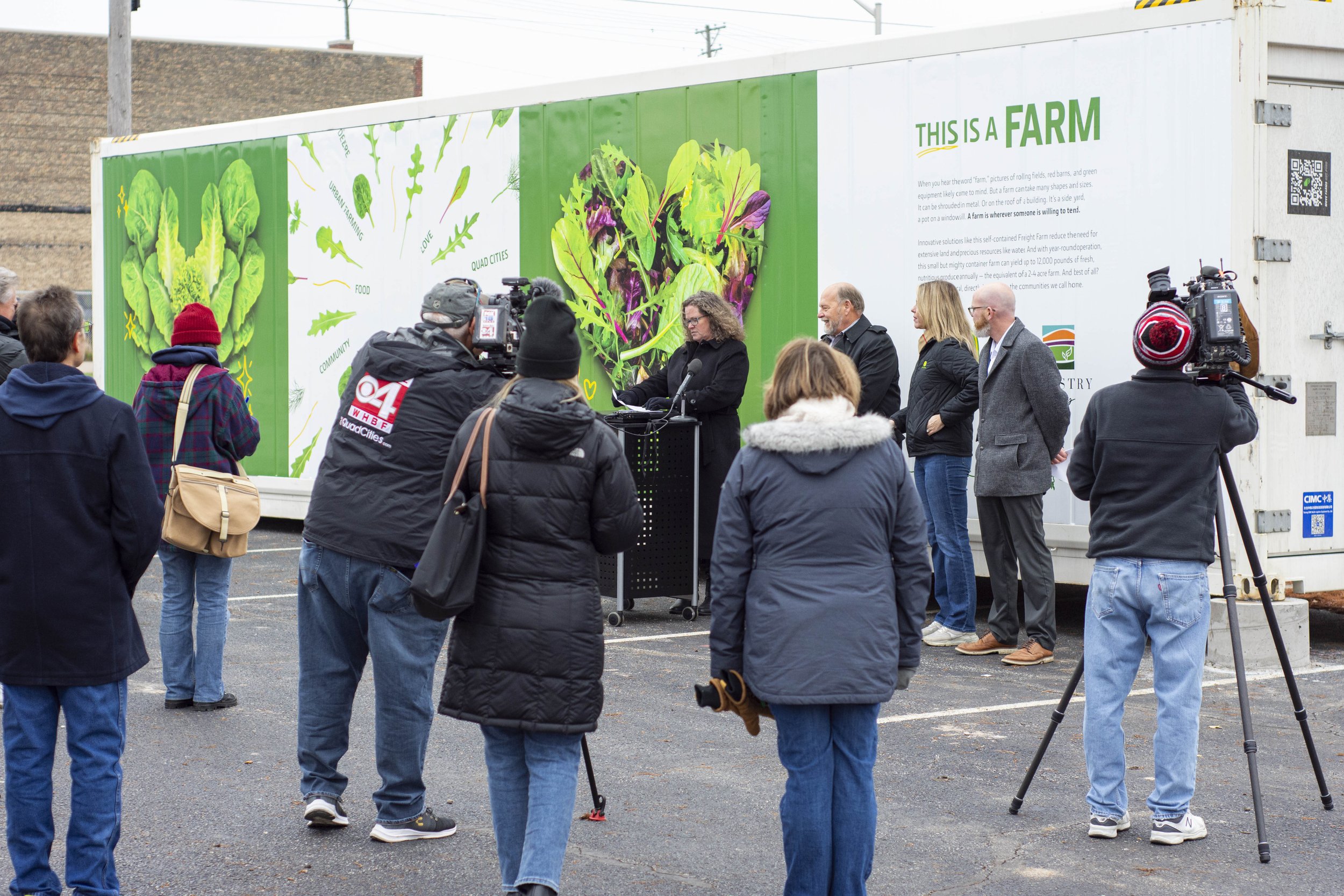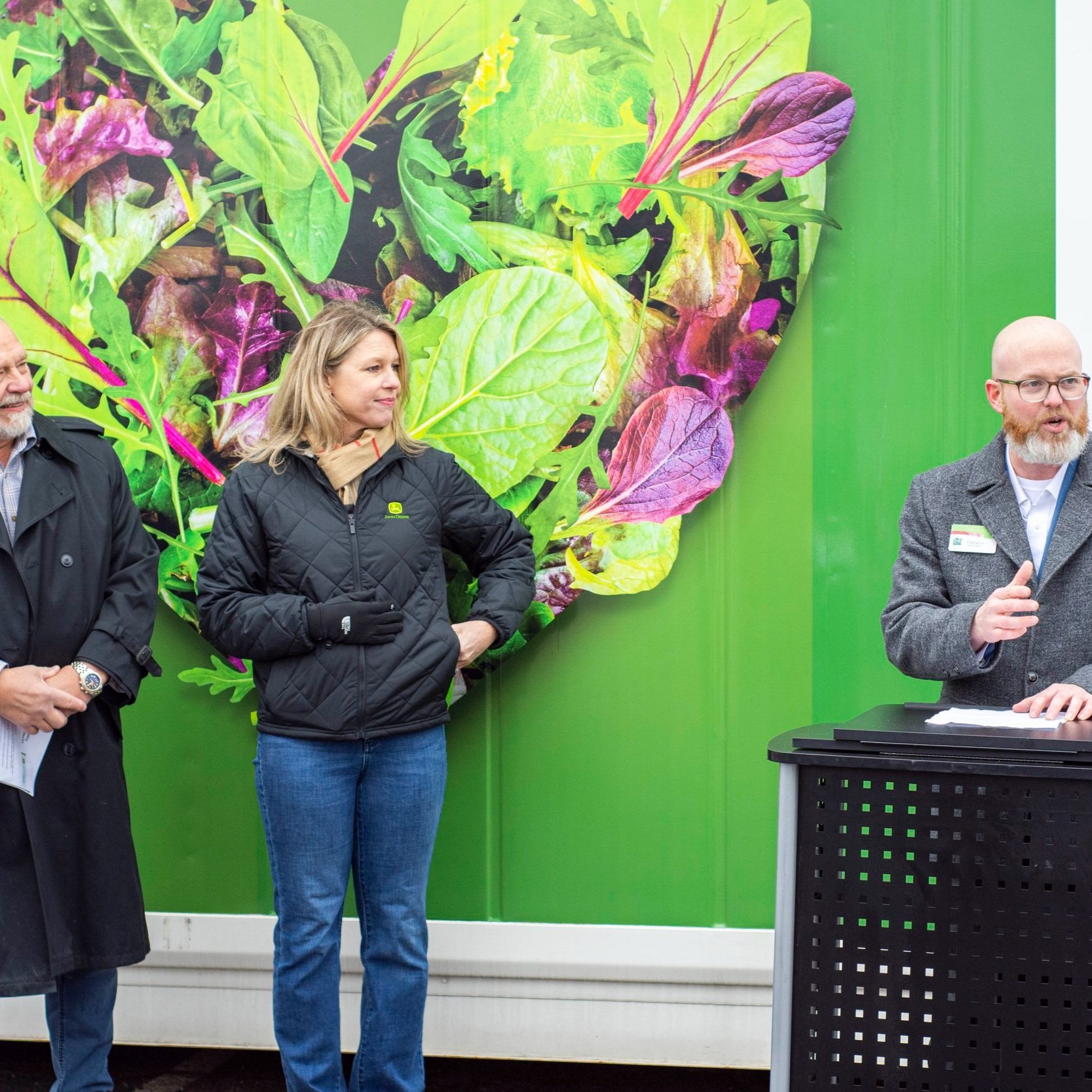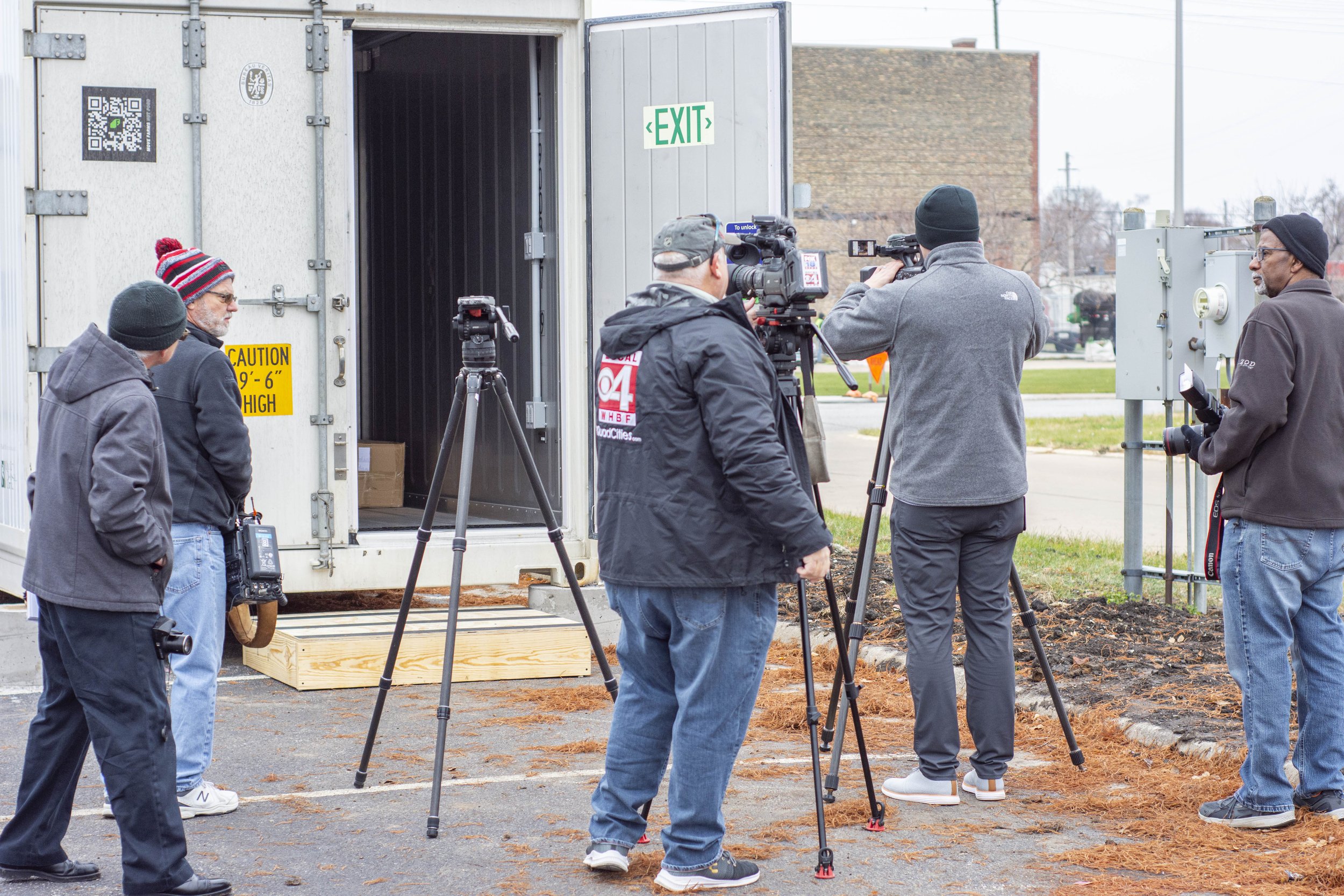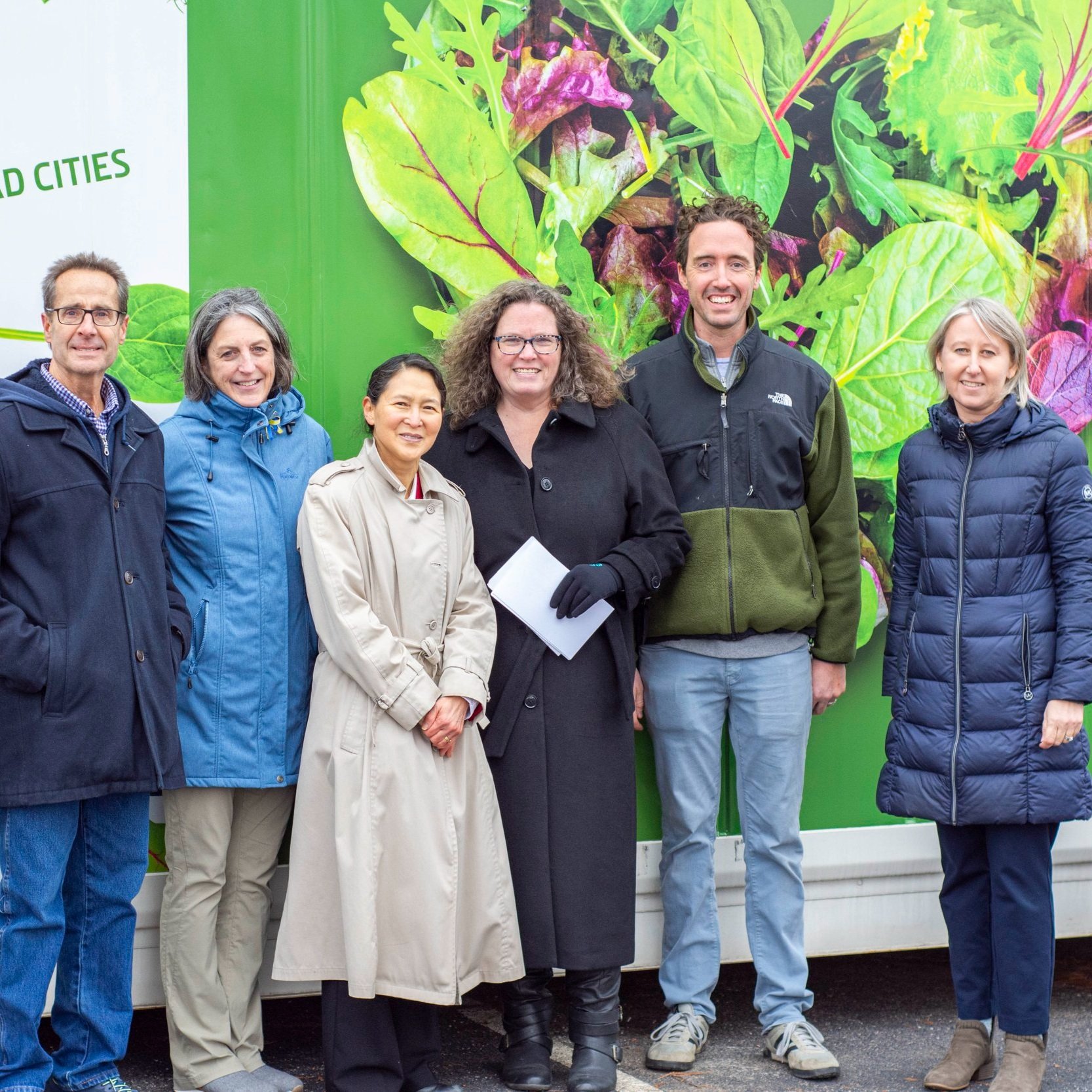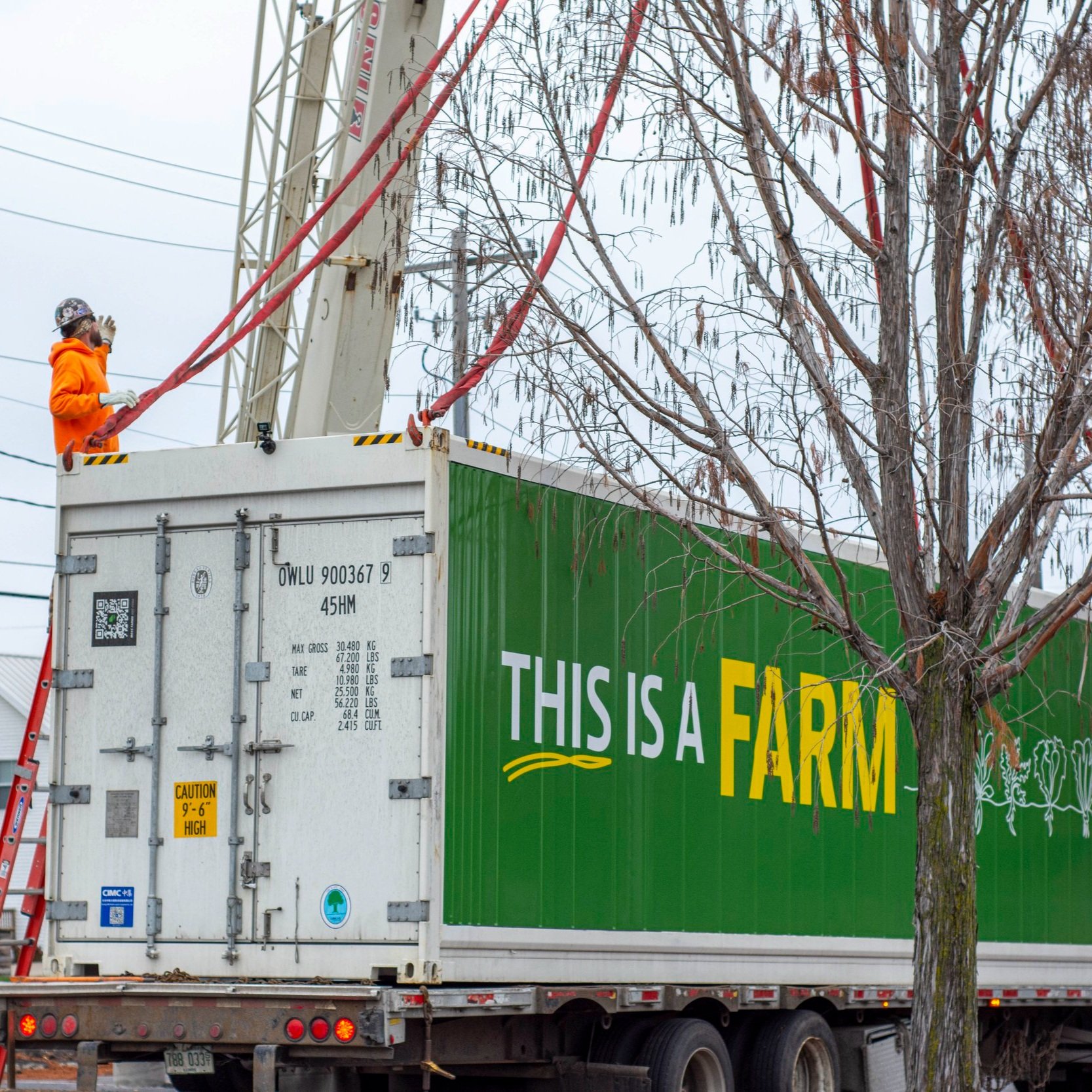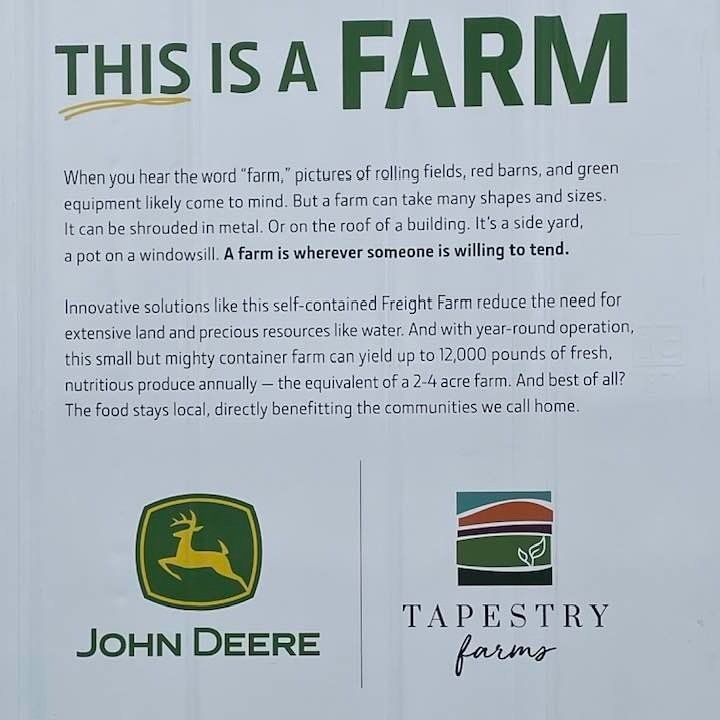Tapestry Farms celebrates new hydroponics container
In partnership with the Deere Foundation, Freight Farms, the city of Rock Island, and the Quad City Botanical Center, Tapestry Farms announces today a significant expansion of our food-growing capabilities for 2024 and beyond.
This morning, a 320-square-foot self-contained hydroponics unit, which can grow between two and six tons of produce annually, arrived from Freight Farms in Boston by semi truck and crane to the parking lot of the Botanical Center. This container will give our organization the opportunity to double, or possibly triple, the amount of produce we can grow each year, said Ann McGlynn, executive director of Tapestry Farms.
The Deere Foundation provided a $371,000 grant for the project. The city of Rock Island welcomed the project with enthusiasm and expertise in working through the zoning process. The QC Botanical Center said yes to offering space in their parking lot to place the container.
“While this is definitely not the first hydroponics project in the Quad Cities, we believe that what makes this one stand out is that the food grown in this container will support our nonprofit operations and feed people who face hunger in our community,” she said.
Nationwide, this growing movement is known as farm to food assistance, where local farmers are compensated fairly for sharing the fresh food they grow to ensure people have enough to eat. Last summer, for example, we participated in the federal Local Food Purchasing Assistance program through River Bend Food Bank, delivering more than 6,000 pounds of produce to eight food pantries in our community. Eight different types of vegetables were delivered either the day of harvest, or very shortly after, throughout the growing season.
But as we all know, it gets cold here in the winter, and we have not been able to grow year round, until now. The ability to grow year-round, hydroponically, has been our dream from the beginning of Tapestry Farms, in 2017, Ann said. A Freight Farm is a vertical, hydroponic farm built inside a modular container. Freight Farms use vertical farming methods and a closed-loop system to create a highly water-efficient and productive, compact growing space. The most recent model, delivered Monday, can grow 2–6 tons of produce annually. Learn more about Freight Farms.
“We are hopeful that the first seeds in this hydroponic unit will be planted by Christmas, and the first crop will be ready sometime at the end of February/beginning of March,” she said. “We will start with butterhead lettuce, the easiest thing to grow, and expand from there. We are thankful for our first committed customers - River Bend Food Bank and Genesis Health System’s Foodplex initiative.”
Tapesty Farms is a community of more than 500 individuals and organizations that make the day-to-day of Tapestry Farms happen. But today, we would like to specifically mention Tapestry Farms colleagues Sonja Kinser, who will lead the daily operations of the Freight Farm, and Todd Byerly, the project manager who is assisting in getting the system up and running. Our board of directors have offered their full and unconditional support and individual expertise for years now, including with this project. We are also thankful for our contractors, Hometown Plumbing, Koehler Electric and MidAmerican Energy, QC Crane, and Treiber Construction.
Three partners provided invaluable contributions for this initiative.
The Deere Foundation saw promise in our small but mighty organization, and offered generous financial support, encouragement, enthusiasm, and super-awesome communications crew to make this initiative happen. The financial investment they made in our work is coupled with groups of enthusiastic and hard-working Deere volunteers who helped us grow a lot of food this summer. Their commitment to ensuring people have enough food to eat, and how they choose to invest in organizations doing that work, is a model worth celebrating.
“Today was a very special day for us at John Deere, as we gathered with our community to celebrate a new farm, and the people who will bring it to life,” said Laura Eberlin, global corporate social responsibility lead with the Deere foundation. “Tapestry Farms is leveraging the enormous talents of refugees and their families and pioneering new approaches to food and farming. The John Deere Foundation was just happy to be able to support a new cutting-edge hydroponics Freight Farm to strengthen our regions food system and help end hunger.”
Hunger is higher today in the United States since the peak of our pandemic, Laura noted. Almost 15,000 people in Rock Island County struggle to put food on their family’s table, over 14,000 in Scott County.
Food Banks across our region are struggling with food donations going down, she said. Retailers are becoming leaner in their inventory management. With food costs increasing, more households in need, communities need to innovate a new approach to getting food.
“When all people who make up a community are honored, and all people feel at home, the community can grow and be stronger together,” Laura said.
Laura Eberlin, corporate social responsibility lead for Deere & Co., and Ann McGlynn, executive director of Tapestry Farms, inside a Freight Farm at the company’s headquarters in Boston in September 2023.
Food systems change in our community will mean thinking and doing in new ways. When Tapestry Farms approached the city of Rock Island if we could place this food-growing container there, city staff and elected officials responded with “we’ve never done this before, but let’s figure out how to make it happen.” And then they did - specifically staff members Tanner Osing, Miles Brainard, and Jerad Irvine. We hope this will serve as a model, and that other governments will do the same when presented with possibilities involving increasing food security in the Quad Cities.
In June, we reached out to Ryan Wille, executive director of the Quad City Botanical Center and said, “Hey Ryan, we have this project to talk with you about.” His response: “That sounds cool. Let’s meet!” Through a series of enthusiastic yeses from Ryan and his colleague Kate Mapes, even through some additional unexpected digging for water, here we are. This is what partnership means, and the people of Tapestry Farms are just so thankful.
The mission of the Quad City Botanical Center is to bring people and plants together in fun and meaningful ways, Ryan said. “The fun part is probably what you all think of when you attend our special events, enjoy our Winter Lights display, or pop in to our one-of-a-kind Children’s Garden on a Saturday morning during the summer. For us to have the opportunity to be a part of Tapestry Farms’ life-changing project is something we are extremely grateful for, and I think I speak for the entire city of Rock Island when I say, welcome. This small portion of our parking lot is yours now, and we can’t wait to see what you do with it.”

